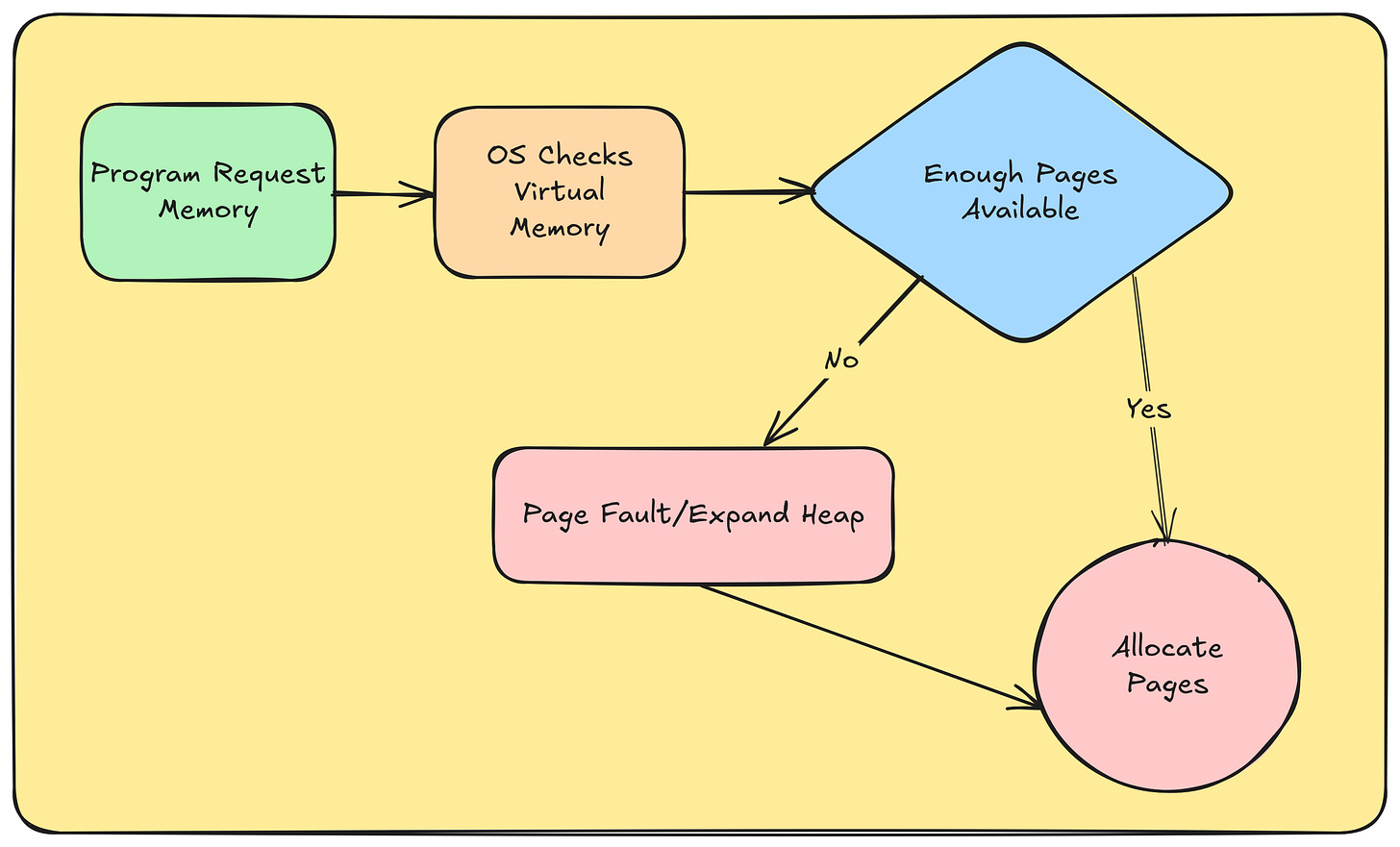Understanding Memory Allocation in C++
When Does Memory Allocation Happen? Compile Time vs. Runtime Explained
Table of Contents
Introduction to Memory Allocation
Types of Memory Allocation
Static Memory
Stack Memory
Dynamic Memory (Heap)
When Does Memory Allocation Happen?
The Role of the Operating System
Dynamic Memory Allocation: A Closer Look
Why Freeing Memory Matters
Memory Leaks and Resource Management
Best Practices in C++ Memory Management
Conclusion
1. Introduction to Memory Allocation
In C++, memory allocation refers to reserving space in a computer's memory to store data during program execution. The way memory is allocated depends on the type of variable and its lifecycle. Understanding this process is critical for writing efficient, reliable, and secure code.
2. Types of Memory Allocation
Static Memory Allocation
Static memory is allocated for global variables, static variables, and constants. This memory is reserved when the program starts and persists until the program terminates.
#include <iostream>
int globalVar = 10; // Static memory allocation
int main() {
static int staticVar = 20; // Static memory inside a function
return 0;
}Key Characteristics:
Allocated at program start.
Size is determined at compile time.
Managed by the OS.
Stack Memory Allocation
The stack is used for local variables and function calls. Memory is automatically managed in a Last-In-First-Out (LIFO) manner.
void foo() {
int stackVar = 30; // Stack-allocated
}Key Characteristics:
Fast allocation/deallocation.
Limited size (risk of stack overflow).
Memory is freed when functions return.
Dynamic Memory Allocation (Heap)
The heap is a pool of memory used for dynamically allocated variables. Allocation and deallocation are manual via new/delete or malloc/free.
int* heapVar = new int(40); // Heap allocation
delete heapVar; // Explicit deallocationKey Characteristics:
Flexible size (limited by OS).
Slower than the stack.
Risk of leaks if not managed.
3. When Does Memory Allocation Happen?
Compile Time vs. Runtime
Compile Time: The compiler calculates sizes for static and stack memory but does not allocate physical memory. It generates instructions for where and how memory will be reserved.
Runtime: Actual memory allocation occurs when the program runs.
Static/Global: Allocated at program start.
Stack: Allocated during function calls.
Heap: Allocated via
new/mallocduring execution.
Why the OS Can’t Preallocate Dynamic Memory
The OS only knows static and stack requirements upfront. Dynamic allocations depend on runtime logic (e.g., user input), making preallocation impossible.
4. The Role of the Operating System
The OS manages virtual memory, mapping program addresses to physical RAM. When a program requests heap memory (e.g., via new), the OS allocates pages of memory as needed.
5. Dynamic Memory Allocation: A Closer Look
How new and delete Work
Allocation:
newrequests memory from the heap.
int* arr = new int[100]; // Allocates 400 bytes (assuming 4-byte int)Deallocation:
deletereturns memory to the OS.
delete[] arr; // Frees the 400 bytesFragmentation: Frequent allocations/deallocations can fragment the heap, reducing efficiency.
6. Why Freeing Memory Matters
Short Programs vs. Long-Running Applications
In a trivial program, forgetting delete may seem harmless since the OS reclaims memory on exit. However, un-freed memory accumulates in long-running programs (e.g., servers, games), causing memory leaks.
Example of a Memory Leak:
void leakyFunction() {
while (true) {
int* data = new int[1000]; // Allocated every iteration, never freed
}
}After thousands of iterations, the program consumes gigabytes of memory, potentially crashing.
7. Memory Leaks and Resource Management
Beyond Memory: Other Resources
Memory isn’t the only resource requiring manual management. File handles, network connections, and database sessions may also leak if not released, causing resource exhaustion.
RAII (Resource Acquisition Is Initialization): A C++ idiom tying resource management to object lifecycles. Use smart pointers (unique_ptr, shared_ptr) to automate deletion.
#include <memory>
void safeFunction() {
std::unique_ptr<int> ptr(new int(50));
// Automatically deleted when ptr goes out of scope
}8. Best Practices in C++ Memory Management
Prefer Stack or Smart Pointers: Avoid manual
new/deletewhere possible.Use Containers:
std::vector,std::stringmanage memory internally.Profile for Leaks: Tools like Valgrind or AddressSanitizer detect leaks.
Adopt RAII: Ensure resources are released when objects are destroyed.
9. Conclusion
Memory allocation in C++ occurs at runtime for dynamic variables, with the OS managing physical allocation on the fly. While the OS cleans up after program termination, responsible developers manually free memory to prevent leaks in long-running applications.
By leveraging stack allocation, smart pointers, and RAII, you can write robust, efficient C++ code that sidesteps common pitfalls.







Thanks for your post!
It is fantastic.